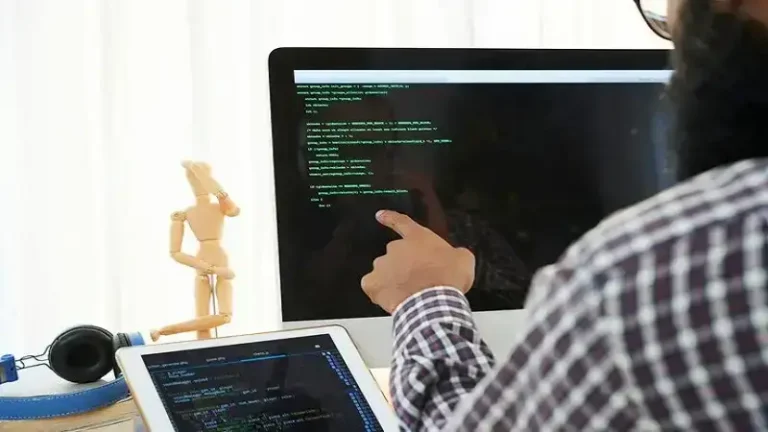Coding is more than just writing lines of syntax; it’s about creating solutions that are efficient, maintainable, and easy to understand. Among the myriad of guidelines and best practices, there exist the unspoken rules of coding for both novice and sage developers. These rules, learned through experience, significantly impact the quality of code and the collaborative process in development teams. In this article, we’ll delve into these essential rules, providing insights that cater to developers at all levels.
Understanding the Importance of Unspoken Rules
The unspoken rules of coding are crucial because they enhance code readability, maintainability, and team collaboration. For novice developers, understanding these rules can accelerate their learning curve, while sage developers can refine their practices and become effective mentors.
1. Write Readable Code
Code is Read by Humans First
One of the unspoken rules of coding for both novice and sage developers is to prioritize readability. Code should be written as if the next person maintaining it is a violent psychopath who knows where you live. This entails using meaningful variable and function names, structuring code logically, and avoiding overly complex constructs.
Example:
Instead of naming a variable x, use userAge or productPrice to make the code self-documenting and easier to understand at a glance.
2. Comment Wisely
Quality Over Quantity
While comments can clarify complex code, excessive comments can clutter your codebase. The rule here is to write comments that explain “why” a decision was made, rather than “what” the code is doing—especially when the code is self-explanatory.
Example:
pythonCopy code# Good Comment
# This function calculates the total price after tax for a given amount.
def calculate_total(price, tax_rate):
return price + (price * tax_rate)
# Poor Comment
# This function adds price and tax_rate
def calculate_total(price, tax_rate):
return price + (price * tax_rate)
3. Consistency is Key
Stick to Conventions
Adhering to coding conventions and style guides is another of the unspoken rules of coding for both novice and sage developers. This applies to indentation, naming conventions, and file organization. Consistency makes it easier for teams to collaborate and for newcomers to adapt quickly.
Example:
If you’re using camelCase for function names, continue using camelCase throughout your project. Switching to snake_case midway can confuse other developers.
4. Embrace the Power of Version Control
Don’t Go Solo
Utilizing version control systems, like Git, is an unspoken rule that both novice and sage developers should embrace. Version control allows developers to track changes, collaborate seamlessly, and manage code in a structured way.
Tips:
- Commit often with meaningful messages.
- Use branches for features or bug fixes to keep the main codebase stable.
5. Test Your Code
Never Skip Testing
Testing is one of those aspects of development that can seem tedious, especially for novices eager to see results. However, skipping tests can lead to significant headaches down the line. Automated tests can save time and ensure that your code behaves as expected.
Types of Testing:
- Unit Testing: Tests individual components.
- Integration Testing: Tests how components work together.
- End-to-End Testing: Tests the entire application from a user perspective.
6. Learn to Debug
Embrace the Debugging Process
Debugging is an essential skill that every developer must master. Instead of fearing bugs, approach them with curiosity. The debugging process often teaches you more about the code than writing it in the first place.
Debugging Tips:
- Use debugging tools and breakpoints.
- Take a step back and approach the problem from a different angle.
7. Code Reviews are Not Just for Novices
A Collaborative Approach
Code reviews should be a regular part of the development process, regardless of experience level. They provide an opportunity for learning and improvement. Novices can gain insights, while sage developers can refine their skills and perspectives.
Best Practices for Code Reviews:
- Focus on the code, not the coder.
- Provide constructive feedback.
8. Keep Learning and Stay Curious
The Journey Never Ends
The world of coding is ever-evolving, and both novice and sage developers must commit to lifelong learning. This means staying updated with new languages, frameworks, and best practices.
Ways to Stay Updated:
- Follow industry leaders on social media.
- Participate in coding challenges and hackathons.
- Enroll in online courses.
9. Ask for Help When Needed
No One Knows Everything
Whether you’re a novice struggling with a simple concept or a sage developer facing a complex issue, asking for help is not a sign of weakness. It’s an essential part of the learning process.
How to Ask for Help:
- Be specific about the issue you’re facing.
- Show what you’ve tried so far to solve it.
10. Write Code for Future You
Think Long-Term
When writing code, think about how it will look in six months or a year. Future-proofing your code means considering scalability, maintainability, and the potential for future updates.
Tips for Future-Proofing:
- Avoid hardcoding values.
- Modularize your code to enhance reusability.
Also Read: DGMNews.com: Bridging the Gap in Digital Journalism
Conclusion
The unspoken rules of coding for both novice and sage developers can significantly impact the quality of your work and the effectiveness of your collaboration with others. By focusing on readability, consistency, testing, and a growth mindset, developers at all levels can enhance their coding practices. Remember, coding is not just about writing code; it’s about creating a product that others can understand and maintain.


